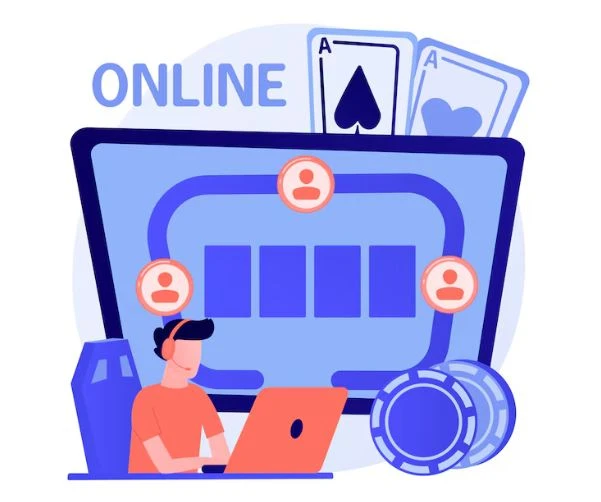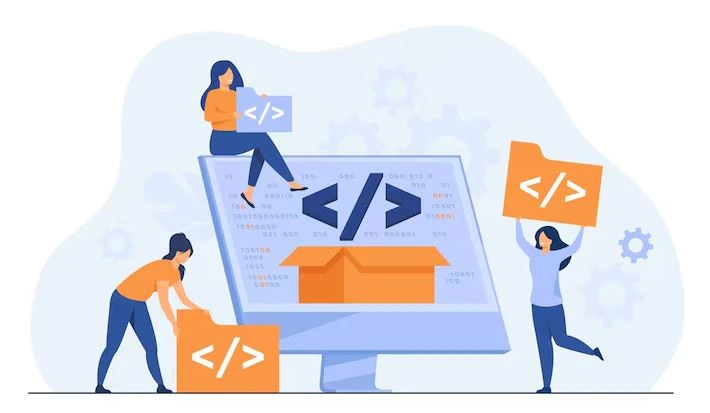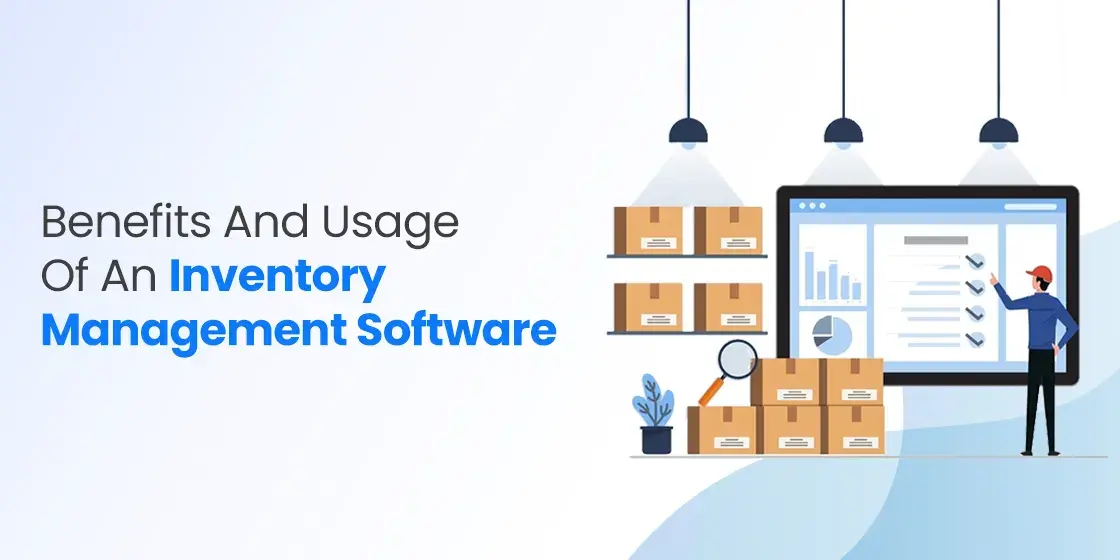Table of Content
Master the Development Process of Lottery Management Software
The lottery industry has gone through a major transformation in recent years. What was once a paper-based, manually-run process is now driven by digital platforms. Technology has not only made lotteries more accessible but also safer and more transparent. Today, lottery management software has become the backbone of this transformation.
People no longer need to stand in lines to buy tickets. They can now enter a draw with a few taps on their phone. For operators, handling thousands of transactions manually is nearly impossible. Built by professional software development services, a lottery management system helps automate every step—from ticket sales to prize distribution—saving time and reducing errors.
In this article, we’ll explore what lottery management software is, how it benefits users and businesses, and how you can build a solution that stands out in the market.
What is Lottery Management Software?

Lottery management software is a digital platform designed to handle all aspects of running a lottery system. It automates the entire lifecycle—ticket generation, draw scheduling, number picking, result announcement, prize distribution, and reporting. It also helps ensure compliance with laws and protects users’ data.
Whether it’s used by national lotteries or private organizations, the software provides a reliable and centralized system. It supports multiple game types—number draws, scratch cards, keno, bingo, and raffle games. These systems are built to scale, meaning they can serve thousands—or even millions—of users at once.
Advanced lottery solutions often include customer relationship management, fraud prevention, and multi-device compatibility. Whether accessed on a mobile phone, computer, or terminal, the experience remains seamless and secure.
Benefits of Lottery Management Software

There are many benefits of using a lottery management software. It not only simplifies user data management, but also automates several operations that are quite complex when done manually. Here are some of its key advantages given below.
Automated Operations
The biggest benefit of lottery software is automation. Manual processing is slow and prone to human error. Software systems automate ticket sales, draw generation, result announcements, and notifications. This increases accuracy and reduces workload.
Enhanced User Experience
A good lottery app offers easy navigation, clear instructions, and instant updates. Players can view their tickets, track draw times, and receive result alerts on their phones. Some systems also offer recurring ticket options and lucky number saving features, improving convenience.
Partner with our software development specialists to pioneer custom solutions that drive your business forward.
Request Your Solution
Real-Time Analytics and Reporting
For lottery operators, real-time data is essential. The software provides dashboards with live metrics—total ticket sales, number of active users, winning patterns, and revenue trends. These insights help make better business decisions and optimize future campaigns.
Multi-Game Support
Many platforms support multiple types of games. Operators can run daily, weekly, or seasonal draws. Instant-win games and scratch-offs can be added to increase engagement. Players enjoy variety, which keeps them coming back.
Strong Security Features
Lottery systems handle sensitive data—personal details, payment information, and draw outcomes. Modern software uses encryption, two-factor authentication, and anti-fraud measures to keep everything secure. This helps gain user trust and ensures legal compliance.
Integrated Payment Systems
These platforms support various payment options—credit/debit cards, UPI, wallets, or even cryptocurrency in some cases. Integrated payment gateways ensure smooth, fast, and secure transactions. Refunds, cancellations, and prize claims can also be managed easily.
How to Build a Lottery Management Software

Just like CRM software, lottery management systems also require a steady development approach. It clears all the technical execution queries, allowing teams to build the software as per the given requirements. Here’s how the development process of a lottery management system works.
Research the Market
The first and most important step in building lottery management software is thorough market research. You need to understand what type of lottery games are trending, what players expect, and how competitors are positioning themselves. Study the most successful platforms and observe their feature sets, design approach, and user experience.
Also, pay attention to local and international regulations related to gambling and lotteries, since legal compliance is a non-negotiable part of your development journey. This phase helps you identify user pain points and market gaps that your software can address, giving you a competitive edge.
Select Objectives
Once the market landscape is clear, the next step is to establish clear and focused project objectives. This involves identifying the specific problems the software is intended to solve and outlining the target segment—whether it’s national lotteries, charity raffles, or commercial gaming platforms. It’s also important to determine the initial scope of the platform, whether starting with a simple MVP or opting for a fully-featured release.
Prioritizing key aspects such as user-friendliness, security, scalability, or profitability will guide the development strategy, influence budget planning, and determine how resources are allocated throughout the project.
Define Development Strategy
With your objectives clear, the next step is to create a detailed development strategy. This includes outlining technical specifications, choosing the right tech stack, and structuring your team. Decide whether you will build the platform in-house or hire an external development team.
Just like enterprise software development, the strategy for lottery management software should also include timeline planning, budgeting, and risk analysis. You’ll need to determine which core features will be built first, such as user registration, draw scheduling, ticket purchasing, and payment integration. Scalability and future-proofing should also be part of this plan to ensure your software can grow with user demand.
Start Software Development
After planning, move into the actual development phase. Begin by designing user interfaces that are simple, intuitive, and accessible across devices. Frontend development should ensure smooth navigation, while backend development should focus on logic, automation, and data security. Build modules for ticket sales, results display, analytics, and customer support.
Make sure that features like age verification, encryption, and compliance checks are implemented from the start. Developers should follow best practices, use version control systems like Git, and conduct unit testing during this stage to catch issues early. Communication between developers, designers, and testers is crucial to maintaining progress and quality.
Test & Deploy Application
Once development is complete, your software must go through a comprehensive testing phase. You can also go for offshore software testing if skilled in-house QA team isn’t available. This involves checking functionality, performance, security, and compatibility across platforms. Functional testing ensures all features work as expected, while performance testing checks how the software handles high user loads.
Security testing identifies vulnerabilities, while compliance testing ensures adherence to legal requirements. After all bugs are resolved, the application can be deployed on a cloud-based server for reliability and scalability. Even after launch, regular updates, user feedback, and performance monitoring are essential for long-term success.
Frequently Asked Questions
| What is a lottery management software? Lottery management software is a digital solution that automates and manages the entire lottery process, from ticket sales to prize distribution. It ensures secure operations, real-time tracking, and regulatory compliance for both operators and users. |
| What are the benefits of a lottery management software? Lottery management software offers automation, accuracy, and faster operations while reducing manual errors. It also enhances user experience, ensures data security, and provides real-time reporting for better decision-making. |
| How to ensure security in lottery management software? Security in lottery management software can be ensured through data encryption, secure payment gateways, and user authentication systems. Regular audits, compliance with regulations, and fraud detection tools further enhance protection. |
Final Words
Lottery management software is changing the game for both operators and players. It brings efficiency, transparency, and security to what was once a manual and time-consuming process. With automation, real-time insights, flexible game design, and integrated payments, it’s a win-win for all parties involved.
Building such software takes effort and planning. From understanding the market to defining features, every step matters. A well-executed platform not only attracts users but also builds long-term loyalty and trust.
Whether you’re running a government-backed lottery, a fundraising raffle, or a commercial gaming app, lottery management software can help you scale and succeed. The demand for digital solutions in this space is growing—and the time to act is now.

Empower your digital journey with StruqtIO - Your dedicated partner for cutting-edge custom software development, innovation, and digital transformative solutions. Harness the power of technology to elevate your business and redefine your digital landscape today.


